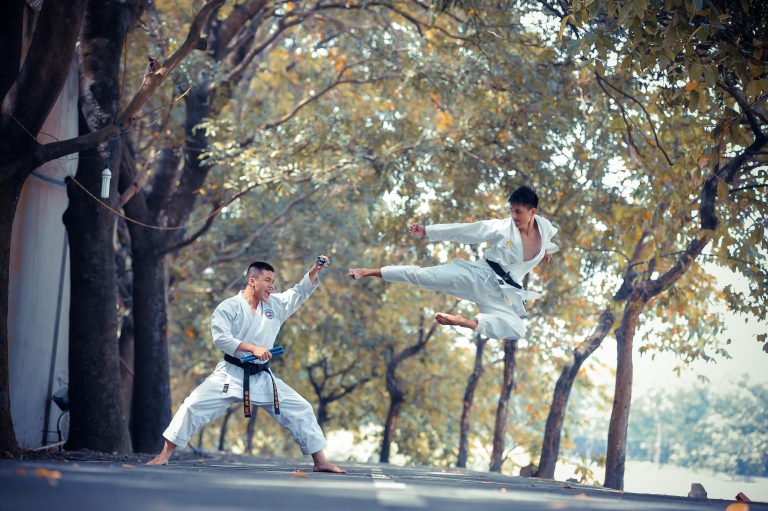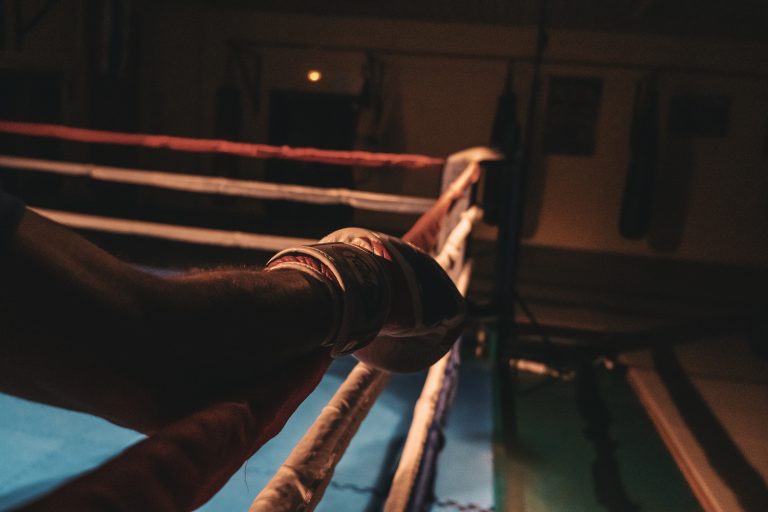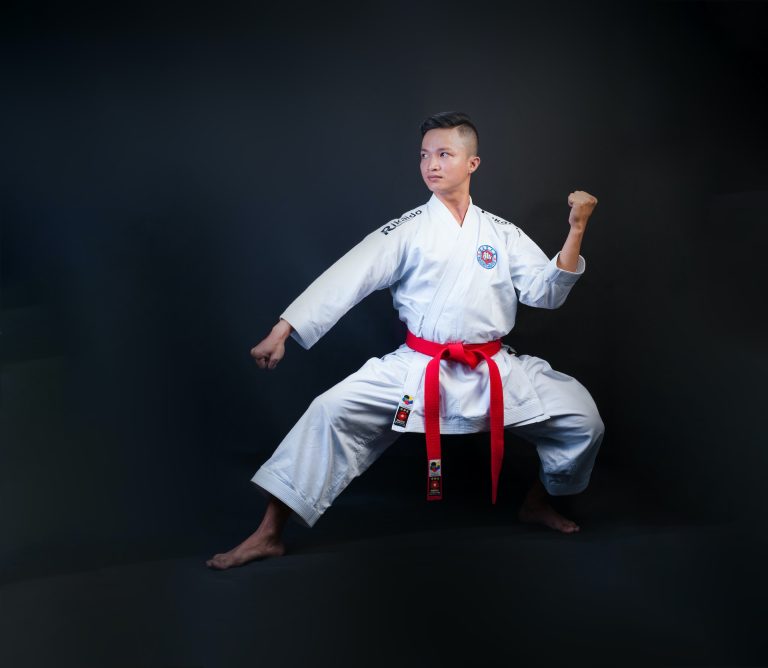What Does Karate Teach You Mentally?
Karate is a form of martial arts which involves various combat techniques like kicking, punching, and striking. It is a practice that requires not only physical strength but also mental discipline. The mental aspects of karate training are often overlooked, but they are incredibly important. Regular karate training can teach you valuable lessons that can be applied to your daily life. In this blog post, we will explore what karate teaches you mentally and how it can benefit you in the long run.
Discipline
One of the most important things you learn in karate is discipline. To become proficient in karate, you must have the willpower to consistently show up for your training, practice your techniques, and push yourself to be better. This level of discipline can be applied to other areas of life as well. For example, if you are struggling with a work project, you can use the same mental fortitude that you use during karate training to power through and get the job done.
Focus
Karate also teaches you how to focus your mind. During training, you must remain focused on the task at hand and not let distractions interfere with your learning. This is especially true during sparring when your opponent is trying to throw you off your game. Over time, you learn to stay calm under pressure and focus intensely on what you need to accomplish. This is a valuable skill that can be applied to any situation, whether it is a high-pressure work project or an important exam.
Goal-Setting
Karate also teaches you the importance of goal-setting. When you first start training, you are given a set of goals to achieve, such as learning a new technique or earning a new belt. Working toward these goals teaches you how to break down a large task into smaller, more manageable steps. This is a skill that can be transferred to other areas of life as well. By setting clear goals and developing a plan to achieve them, you can accomplish anything you set your mind to.
Respect and Humility
Respect and humility are values that are deeply ingrained in the practice of karate. In the dojo, students are expected to show respect to their instructors and fellow students. This includes bowing when entering and leaving the dojo, addressing instructors by their titles, and treating everyone with kindness and understanding. This level of respect and humility can be applied to other areas of life as well. By treating others with respect and understanding, you can build better relationships with your coworkers, family members, and friends.
Confidence
Finally, karate teaches you confidence. As you progress through the ranks, you become more proficient in your techniques and develop a sense of self-assuredness that can be applied to other areas of life as well. This confidence allows you to tackle new challenges without fear and take on leadership roles when necessary.
In conclusion, karate is a martial art that teaches not only physical strength but also valuable mental skills. By developing discipline, focus, goal-setting skills, and respect, you can become a more disciplined and effective person in all areas of life.
What does Karate Teach You Mentally?
Introduction
Karate is a form of martial art that not only improves your physical abilities but also your mental strength. There is no doubt that it is an excellent way to stay physically fit, but karate’s mental benefits are equally significant. Karate helps to develop discipline, self-control, perseverance, and other psychological benefits that are essential for living a healthy and successful life. In this post, we will explore the most frequently asked questions about what karate teaches you mentally and how it can benefit your everyday life.
What is mental strength in karate, and how is it developed?
Mental strength is one of the key components of karate. It refers to the ability to stay calm, focused, and resilient in the face of physical and mental adversity. Mental strength is developed through regular practice, meditation, visualization, and other techniques taught in karate classes. Karate instills a sense of self-discipline, self-confidence, and self-control that are crucial for developing mental strength.
How does karate develop self-control?
Self-control is the ability to control one’s emotions, thoughts, and actions. Karate teaches self-control by emphasizing the importance of discipline, focus, and determination. Students are encouraged to practice self-control by following the rules of the dojo, being respectful to others, and maintaining a positive attitude. When students develop self-control, they become less reactive to stress, more mindful of their actions, and better able to cope with difficult situations.
How does karate help with focus and concentration?
Focus and concentration are crucial skills that are developed through karate practice. Karate requires a high level of mental focus and concentration, especially during sparring sessions and competitions. Students learn to concentrate on a specific goal, block out distractions, and remain focused on the task at hand. These skills can be transferred to other areas of life, such as work, school, or personal relationships.
Can karate help with stress and anxiety?
Karate can be an excellent tool for managing stress and anxiety. The physical aspect of karate helps to release tension in the body, while the mental focus required during practice can help to quiet the mind. In addition, karate teaches breathing techniques that can help to reduce stress and anxiety. By combining physical exercise, mental focus, and relaxation techniques, karate can be an effective way to manage stress and anxiety.
How does karate improve confidence?
Karate can be a powerful tool for improving self-confidence. Through regular practice, students develop a sense of mastery over their bodies and minds. This mastery leads to increased self-esteem and confidence in one’s abilities. In addition, karate emphasizes the importance of respect, both for oneself and for others. By developing respect for others, students learn to appreciate their own strengths and abilities, which can lead to increased self-confidence.
How does karate help with goal setting?
Karate emphasizes the importance of setting goals and working towards them. Students are encouraged to set specific, achievable goals and work towards them through regular practice and discipline. This approach to goal setting can be applied to other areas of life, such as work or personal relationships. By learning to set and work towards goals, students develop a sense of purpose and direction that can lead to a more fulfilling life.
How to Improve Your Mental Strength with Karate: A Comprehensive Guide
If you’re interested in improving your mental strength, few activities are more beneficial than practicing karate. Mental fortitude and resilience are integral components of martial arts training, and karate is no exception. By regularly practicing karate, you can learn how to overcome challenges, control your emotions, and develop a more focused and disciplined mindset. In this guide, we’ll explore the steps you can take to improve your mental toughness through karate.
Step 1: Find a Qualified Instructor
The first step in your karate journey is to find a qualified and experienced instructor who can guide you through the training process. Look for an instructor who has extensive experience teaching karate and a deep understanding of the mental and physical aspects of the practice. You can start by checking online for karate schools or dojos in your area, and then visit the facilities to observe a class or speak with the instructor.
Step 2: Establish Your Goals
Before beginning your karate training, it’s essential to establish your goals. What do you want to achieve mentally and physically? Are you looking to improve your focus, learn self-discipline, or gain more confidence? Understanding your goals will help you stay motivated and focused throughout your karate journey.
Step 3: Start with the Basics
Karate training often begins with mastering the basics. This includes learning the proper stance, basic punches, kicks, and blocks. Although it may seem tedious, mastering the basics is crucial for developing mental toughness. It teaches you patience, determination, and the importance of attention to detail.
Step 4: Embrace the Mental Challenge
One of the essential mental components of karate is learning how to harness and control your emotions. This involves embracing the mental challenge of the practice, rather than shying away from it. Karate requires you to step outside of your comfort zone both mentally and physically, learning how to stay calm under pressure and push through discomfort.
Step 5: Practice Mindfulness
Mindfulness is an essential component of karate training, helping you stay present and focused during practice. Practicing mindfulness involves paying attention to your breath, body, and surroundings, and staying fully immersed in the moment. This approach can help you stay calm, reduce stress and anxiety, and improve your overall mental well-being.
Step 6: Set Realistic Expectations
When it comes to improving your mental toughness with karate, setting realistic expectations is essential. Keep in mind that progress may be slow at first, and it may take months or even years to see significant mental and physical improvement. Embrace the journey and try to maintain a growth mindset, focusing on progress rather than perfection.
Step 7: Find a Supportive Community
Karate is not just about individual practice but also about building a supportive community. Find a group of individuals who are supportive, encouraging, and passionate about karate. This community can provide you with a sense of accountability, camaraderie, and motivation to continue on your journey towards mental toughness.
Conclusion
Improving your mental toughness through karate requires patience, discipline, and dedication. By following these steps and working with a qualified instructor, you can develop an unshakable mindset and become mentally strong. Remember, the key is not to rush the process, but rather to embrace each step of your journey and stay focused on your goals. With time and practice, you can develop a strong and resilient mind that will serve you well in all aspects of life.
Inhaltsverzeichnis






